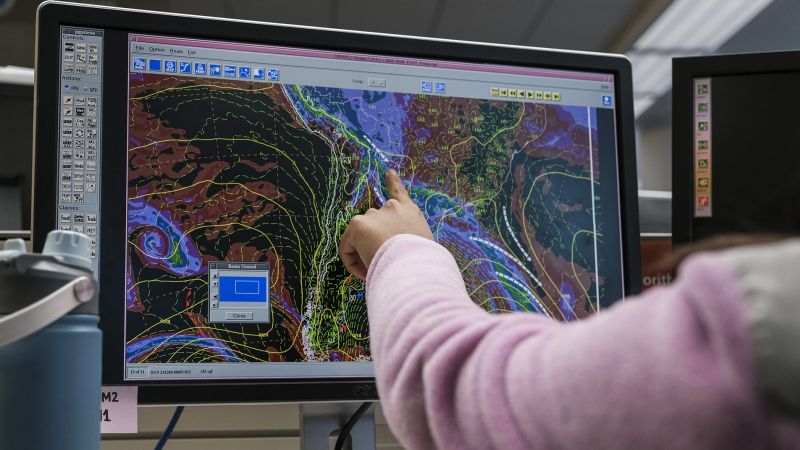A Turkish engineer, researcher, and inventor who led his country’s superiority in the field of drone technology, he was born in 1979. Some describe him as the “father of Turkish drones” and liken him to the American inventor of Syrian origin, Steve Jobs, and he became a role model for many young people interested in technology around the world.
He married President Recep Tayyip Erdogan in 2016 by marrying his daughter Sumaya, and received several medals and honors because of the important role played – in many conflict areas – by the drones he made.
Birth and upbringing
Selcuk Ozdemir Bayraktar was born on October 7, 1979 in the city of Istanbul to a wealthy conservative family. His father is the politician and businessman Ozdemir Bayraktar, who practiced politics alongside Erdogan during the 1990s. He is the owner of the “Baykar” technical company that specializes in manufacturing unmanned aerial vehicles. .
His mother, Jinan Bayraktar, was a programmer at the Turkish Industries Bank, and she worked with her husband in the family company, which created a passion in her son Selcuk and his brothers Haluk and Ahmed for the world of aircraft and the way they work and manufacture them.
Study and scientific training
He began his educational career at Sariyer Primary School in his hometown, then moved to the American “Robert” School in Istanbul, and completed the middle and high school levels, graduating in 1997.
He joined the Faculty of Electronic and Communications Engineering at Istanbul Technical University. During his undergraduate studies, he applied for training at the University of Pennsylvania, where he found a golden opportunity that opened new horizons for him and gave him advanced skills that enabled him to realize his dream and develop his father’s company, Baykar.
He returned to Turkey after the end of the training period, during which he was able to convince the university administration to provide him with a full scholarship to study a master’s degree in the Department of Unmanned Aircraft Development after graduating from his bachelor’s degree, which he did between 2002 and 2004.
After excelling in his master’s studies, he was able to obtain another scholarship to study a second master’s degree with a scholarship at the Massachusetts Institute of Technology on controlling drones.
During this period, he worked as an assistant to Professors George Pappas and Eric Veron, who are professors of electrical and computer engineering at the institute, which enabled him to conduct scientific research on collective flight experiments for the first time in the world, and control and guidance systems for flights.
Practical experience
After completing his education in 2007, he returned to Turkey, where he became the technical director of Baykar until he took over the management of its board in 2021.
He is interested in various fields in the development of drones developed in Turkey, such as flight control, aviation systems engineering, development of navigation algorithms, dynamics and motion of systems, development of embedded software and electronic devices.
Bayraktar founded and chaired the Turkey Technology Team Association in 2017, with the aim of encouraging young people and those enthusiastic about development in various fields of technology to conduct in-depth research in cooperation with the association.
He designed a “Bayraktar TB2” drone guidance and control system that was used in many conflicts such as the Turkish conflict with the Kurdistan Workers’ Party, the war in Syria, and the Libyan war.
He was also able to design the “Bayraktar Mini”, which is the first drone to be included in the Turkish army’s arsenal, after which he developed the “Bayraktar Akanji” system, which is considered the first unmanned attack system in the country, and delivered it to the armed forces on August 29, 2021.
Bayraktar succeeded in leaving an important mark on one of the most important signs of Turkey’s growing superiority in drone technology, the “Qazil Elma” or “Red Apple,” which succeeded in carrying out its first sorties in 2023 and was distinguished by its ability to fly at an altitude of 35 thousand feet, and with a maximum speed exceeding 1224. km/hour. It can also carry 1.5 tons of missiles and ammunition, and its flight time reaches 5 hours.
He supervised the organization of the “Technovest” Space Technology Festival on April 27, 2023, which is considered the largest in the world for aviation, space and technology. It is also considered an important means in Turkey to discover the talents of young participants to display their technological innovations such as missiles and robots, with the support of government institutions.
Honors and patents
Due to the major role played by the Bayraktar TB2 drones in the Nagorno-Karabakh war, Bayraktar was awarded the National Order of Karabakh by Azerbaijani President Ilham Aliyev on April 1, 2021.
On October 2, 2022, he was awarded the International Order of Merit by the President of Ukraine, Volodymyr Zelensky, for the important role played by Turkish drones in the Russian-Ukrainian war.
Bayraktar received the highest national medal of the State of Mali from its president on October 18, 2023, in appreciation of the contributions and services he provided to this country in the technological field.
He also obtained 4 patents from the Turkish Patent Institute in 2015 for an automatic landing and take-off system for aircraft, a control system that can detect changes in working conditions, a flight control system with 3 backup points, and an echo measurement device.
Charity
Bayraktar’s name emerged during the Coronavirus (Covid-19) pandemic when he announced, through his personal account on the Twitter platform on March 22, 2020, that he would provide technical support for the production of 5,000 respirators in Turkey in cooperation with other companies, which he later implemented. One month from the date of his announcement of the initiative.
It also rushed to provide financial support estimated at 650 million Turkish liras during the first four days of the devastating “Kahramanmaraş” earthquake that struck the south of the country and northern Syria on February 6, 2023.




